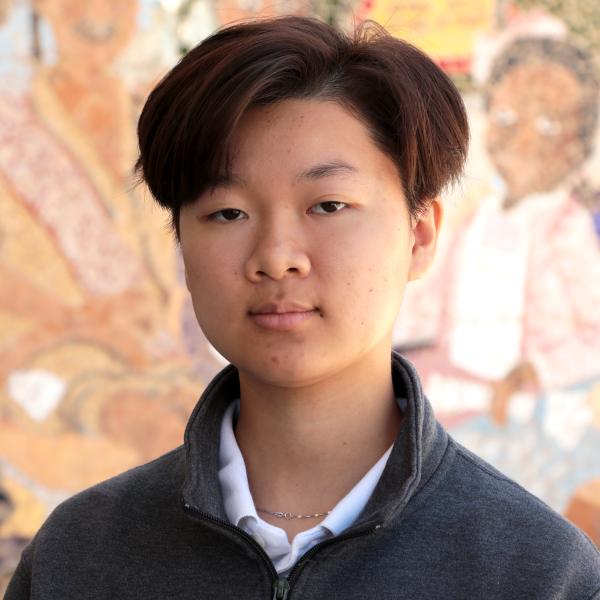California passed the Phone-Free Schools Act in September 2024, requiring schools to restrict phone usage during the school day by June 2026. Oxford Academy began enforcing this policy for the 2025-26 school year, prohibiting students from using their phones on campus outside of lunch and after school without a teacher’s permission. While the law aims to improve engagement, overly rigid restrictions at Oxford raise questions about whether a “one-size-fits-all” ban truly serves students.
2026. Oxford Academy began enforcing this policy for the 2025-26 school year, prohibiting students from using their phones on campus outside of lunch and after school without a teacher’s permission. While the law aims to improve engagement, overly rigid restrictions at Oxford raise questions about whether a “one-size-fits-all” ban truly serves students.
Oxford’s policy prohibits phones during class, passing periods, free periods, and even before school starts. Meanwhile, Cypress High School, another AUHSD school, implements the policy more flexibly.
“During passing period and at lunch, [students] can use their devices. They have time in between, so we recommend to kids that they do things like pop their phone into airplane mode before they walk into class,” said Cypress principal Jennifer Brown.
Cypress administration has also installed additional resources and altered their approach to the ban, accommodating students’ needs and personal boundaries. Several science classes have received class sets of iPads to supplement educational phone use. They have also set up a warning system where teachers give warnings first for phone use and then verbally request the phone, contrasting Oxford’s harsher procedures. Cypress holds students accountable while still granting some leniency.
Phones often serve as classroom tools, whether for recording presentations, taking photos of notes, or quickly checking schedules — all tasks that are limited on computers. Strict limits on phone use also interfere with vital communication throughout the day, whether between students and parents regarding transportation or family responsibilities, and announcements amongst organization members. For some, phones even provide accessibility functions like reminders or speech-to-text messages. When all these purposes are treated as equivalent to scrolling through social media in class, students can feel unfairly punished, overly policed, and stripped of independence. The policy’s one-size-fits-all approach risks ignoring the varied and legitimate ways students rely on their cell phones.
“It really should be up to the student to determine their learning ability, and teachers should not have the right to take away tools that help students learn. I think it has now become more of a fear factor than an actual difference in the policy,” senior Matthew Hong said.
For students, the ban has created confusion and frustration. Despite the new phone policy being communicated through Oxford’s social media, weekly update emails and ParentSquare, many students were unaware that the policy prohibited phone use on campus before first period. Banning phones on campus before school also seemed to have no clear objective, as there are no instructional classes during this time.
“It’s more convenient to look at emails on your phone and communicate with your friends before school,” sophomore Tessa James said. “[Without phones,] if they’re earlier than you, you can’t exactly communicate with them as well.”

This rule was not part of the law, but rather principal Amber Houston’s preference. She added it for the convenience of repetition and adapting to the policy’s rules by the time classes start.
“I think it just prepares them for their first period and it gets them in the mindset that, ‘Okay, I’m letting this go for the rest of the day,’” Principal Houston said.
Oxford staff’s immediate confiscation of phones at the slightest sight has strayed from its goal of enhancing academic performance, creating an unnecessarily tense campus environment.
“I received a detention for using my phone during free period yesterday, and I don’t think it was justified since I was using it to verify my email for my online class, and I only used it for a minute or two,” said sophomore Aiden Lucero. “I feel like these rules shouldn’t be applied to free periods since it wouldn’t be possible to do some activities without using your phone for a few websites.”
Though rigid bans paint the issue as one-dimensional, students’ phone usage on campus is nuanced: computers cannot replace every function of a phone, especially in communication or taking photos. Treating all phone use as equally harmful neglects such valid purposes. Given the state law’s flexibility, Oxford should permit phone use before school and during passing periods while implementing the ban, to balance legal compliance with students’ needs.



























































